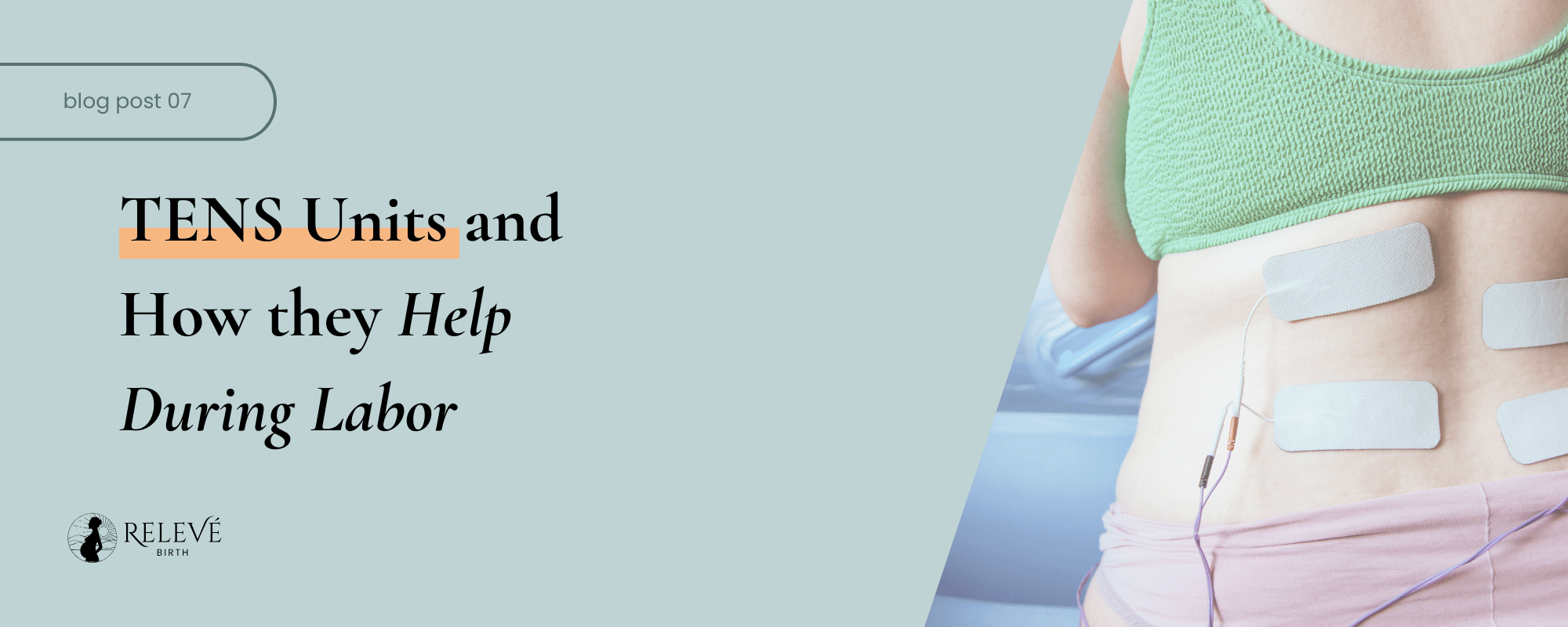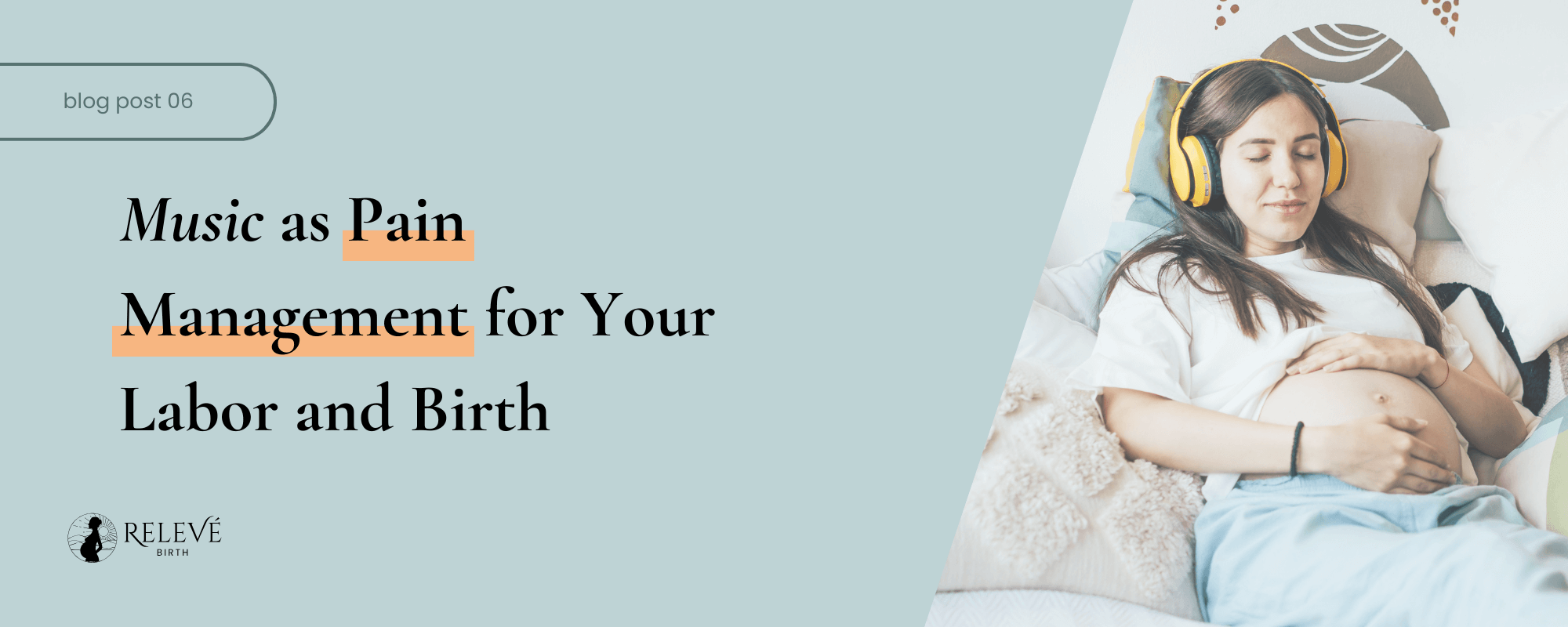Music as Pain Management for Your Labor and Birth
Last week we discussed non-medical methods of pain management, and now we are going to dig into one method a bit deeper. This week we are going to discuss music and its benefits during labor and birth.
For years music has been a part of our lives. It’s used to celebrate, pass the time, entertain, and the list goes on. We all have those songs that evoke certain feelings and emotions. I can think of a few off the top of my head that just make me happy. I can also think of a few that bring back certain memories or remind me of loved ones. Do you ever turn on your get shit done playlist to clean the house, or your chill out playlist when you are headed to bed? Music can affect our mood, our stress levels, our relaxation, etc.
Benefits of Music in Labor and Birth
Research has shown that music can be beneficial during labor in a multitude of ways. Let’s look at some of those benefits.
Pain Reduction
Listening to music during your labor and birth can reduce your perceived pain. This is supported by a theory known as Gate Control Theory, which is a widely accepted explanation of how pain signals are processed. Imagine your spinal cord as a gate and pain signals as messengers trying to get through. When you experience pain, nerve signals travel from the source to your spinal cord. If the pain signals are strong, the gate opens wide and the signals make their way to your brain resulting in the sensation of intense pain. However, if there are competing signals the gate closes partially or completely resulting in diminished pain sensations. This means that using music as a stimulus the gate lets less of the pain stimuli through to the brain, reducing the perceived pain.
Stress and Anxiety Reduction
Stressful situations result in the release of excess cortisol. Cortisol levels affect many things in your body and anxiety is one of them. Music can help mitigate the effects of the cortisol levels in your system. Studies have shown that listening to music can calm your nervous system and lower cortisol levels which result in reduced stress levels. If you are in a more relaxed state you are better able to manage pain.
Emotional Support and Enhanced Mood
Music can evoke positive emotions, providing emotional support and a sense of comfort during labor. Music boosts the feel good chemicals in your brain increasing the dopamine and therefore reducing the cortisol levels, a.k.a. stress levels. When your stress levels are lowered you are more able to relax and that in turn leads to lower levels of pain. For mothers on the path of natural birth, where emotional resilience plays a pivotal role, music can be key in navigating the peaks and valleys of the birthing journey. The right melody has the potential to transport you to a serene mental space, easing the emotional intensity of the moment.
Distraction and Reduced Perception of Time
We all know that labor can be, and seem to be, very long. Listening to music can help the time pass and distract you from the clock and/or other unpleasant experiences. You can use different types of music for different experiences during pregnancy and labor. Need a pick-me-up, or a boost of energy? Try listening to some upbeat, empowering music. Want to connect with your husband? Dance or sway with them to some slow songs. There’s music for all occasions. I’m sure you can come up with a few playlists to help distract you and make time fly by.
Rhythmic Breathing
You may experience irregular breathing patterns during labor. It may seem difficult to catch your breath, or you may find yourself holding your breath. This can stress you out and in turn your pain levels may increase. Music can help you regulate your breathing patterns, taking long deep breaths to calm your nervous system.
And these are just some of the many benefits of music during labor that can help with pain management. Music is so effective that there is even music therapy with a trained medical professional.
What is music therapy?
Generally speaking, music therapy is a relatively new approach to improving the well-being of people who are both sick and healthy. Music therapy is used in various situations from clinical settings to home settings for symptoms ranging from acute or chronic pain to brain injuries. Music therapy is the use of music or musical elements such as sound, rhythm or harmony. Music therapy has a wide range of treatment methods: composing music, playing or improvising music, singing, moving to music, listening and discussing music.
What is the best music to listen to for relaxation?
In 2012, an article was published that looked at what makes the best music for relaxation. In the study 14 music therapists recommended and analyzed 30 selections of music. Then a group of 80 healthy adult participants listened to the music and rated their familiarity, preference and level of relaxation.
The results showed that there are certain intrinsic properties in the music that were relaxing to the listeners. These include tempo, the way it sounds, the instruments used, the melody and rhythm, the singer’s voice, the lyrics, the pitch, and the overall feel of the music. The study also found that people’s familiarity with the music and their musical preferences were strongly linked with how relaxed they felt when they listened to the music.
Simply put, music is personal. Even though there are some characteristics that make music relaxing, music is also very subjective. What is relaxing to me, might not be relaxing for you, and vice versa.
Another study from 2018 out of Turkey looked at the effect of music on pain and anxiety of women during labor on first time moms. They looked at 50 healthy, first-time moms who were giving birth without pain medication. They were randomly assigned to give birth while listening to music in Acemasiran mode during active labor or no music, which was the control group. The music group listened with earbuds for 3 hours. They would have 20 minutes of listening and a 10 minute break.
After the first hour of listening, the experimental group indicated that their pain scores were statistically lower. They also found that their anxiety levels were lower compared to that of the control group after the intervention. They concluded that listening to music is an effective, simple and economical method to facilitate coping with labor pain and improve a mother’s wellbeing during labor.
Give It a Try!
It’s no wonder that music has been a part of our lives since ancient times, and that there is music for all occasions. What is liked by one person may not be liked by another. Musical preferences are vastly different from person to person, but regardless the benefits are there. In a nutshell, utilizing music for pain relief during labor is not only beneficial but also low- or no-cost, with no apparent side effects. It may enhance the childbirth experience by reducing anxiety, working to minimize pain, and fostering a profound sense of relaxation.
Disclaimer: This is not medical advice. Please discuss all medical concerns with your care provider. This content is for educational and informational purposes only.
Welcome to the Relevé Birth Blog!
Here we explore the incredible journey of motherhood. Join me as we delve into empowering insights, easy movement tips and holistic approaches to pregnancy, birth and postpartum.
You Might Also Like…
Thanks for reading!
Hi, I’m Sierra, a doula with a passion for physiological birth. My mission is to help moms, like you, gain the confidence to wholeheartedly trust their bodies to bring their babies into the world.
Join the movement to a better birth.






